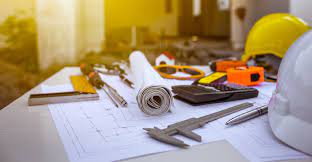In the fast-paced world of real estate, property improvement ai has changed from an labor-intensive, manual procedure to one that is increasingly dependent on artificial intelligence (AI). This technology shift is changing the way that property owners, investors and developers approach upgrades and renovations. This article will provide an overview of the ways in which AI is changing the way property improvement ai and what you need know.
1. AI-Powered Design and Planning
AI is revolutionizing property design and planning with its sophisticated tools for designing and visualizing renovation projects. AI algorithms can analyze historic data and architectural plans to suggest optimal design improvements. Tools such as VR (VR) and AR, or augmented reality (AR) powered by AI, let users experience potential changes in real-time before committing to them. This can not only improve decision-making but also aids in avoiding costly mistakes.
2. Smart Renovation Recommendations
AI-powered platforms are able to assess the condition of a home and suggest specific improvements. Through the use of data from prior renovations, market trends, and the preferences of customers, these platforms can provide insights into which upgrades can yield the most ROI. For instance an AI system might suggest updating a kitchen or bathroom to boost the value of a home, according to comparable sales and current market needs.
3. Predictive Maintenance
Maintaining a property involves the ability to anticipate and address issues before they become major issues. AI plays a key function in predictive maintenance by studying patterns and identifying possible issues. For example, AI systems can monitor HVAC systems, plumbing, and electrical infrastructure to predict failures and recommend preventive measures. This proactive approach assists in reducing repair costs and prolonging the life of building components.
4. Cost Estimation and Budget Management
AI tools can streamline cost estimation by analyzing historical data, material prices and labor costs. This can help developers and property owners create more accurate budgets and prevent unexpected costs. AI can also optimize the procurement process by suggesting cost-effective suppliers and materials in light of the current market conditions.
5. Enhanced Project Management
Managing property improvement projects involves coordination of multiple tasks and stakeholder. AI helps improve project management by automating scheduling, tracking progress, in addition to managing resource. AI systems are also able to examine project data to find any potential issues or delays and allow for quick intervention and adjustments.
6. Personalization and Customer Experience
AI allows for a more personalized experience through the analysis of user preferences and behaviors. For instance AI-driven design platforms are able to provide suggestions for home improvements that are tailored to individual tastes and lifestyle demands. This customization enhances satisfaction and ensures that renovations meet the requirements of individual property owners.
Conclusion
AI is fundamentally altering the way property improvements are conducted through making processes more efficient, cost-effective and user-friendly. From planning and design to maintenance and project management, AI tools are helping property owners and developers make informed choices and attain better outcomes. As technology continues to advance, the role of AI in the improvement of property will only become more significant with new possibilities and opportunities in the real estate market.
